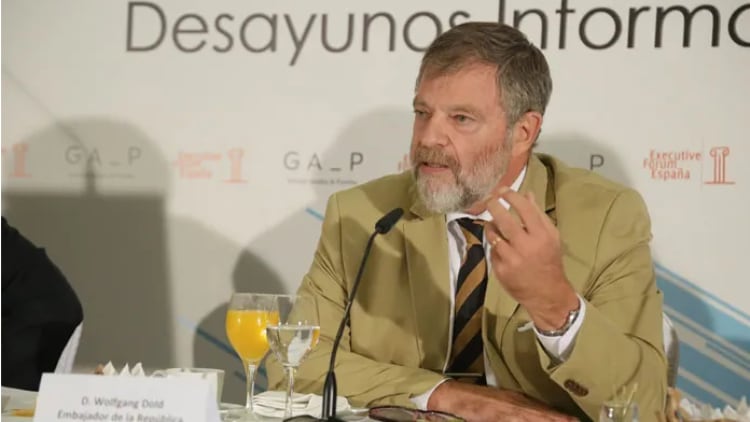The Diplomat
The German Ambassador to Spain, Wolfgang Dold, has affirmed that for Western Sahara, “the most important thing is to achieve a mutually acceptable solution in the framework of the UN”, an approach “shared” by Madrid and Berlin and in which the Moroccan autonomy plan would be in German eyes “an important contribution”.
“Any solution to the Western Sahara conflict must be agreed within the framework of the United Nations”, Dold said in an interview with Europa Press, in which he backed the work of the UN special envoy, Staffan de Mistura, appointed to the post in 2021.
The ambassador trusts De Mistura to achieve “a just, lasting and mutually acceptable political solution to the question of Western Sahara”, a thorny issue in recent months for both Germany and Spain due to the gestures made towards Morocco.
Rabat recalled its ambassador to Berlin for consultations in May last year. After the arrival of Olaf Scholz’s government, Berlin settled its diplomatic crisis with Rabat by publicly recognising the 2007 autonomy plan for the former Spanish colony. According to Dold, Morocco keeps on the table “an important contribution to a possible agreement”, in language similar to that used in December by the German foreign ministry.
The ambassador avoids assessing Spain’s political turnaround, which sees the Moroccan plan as “the most serious, realistic and credible basis” for resolving the conflict, but points out that both Berlin and Madrid “share” the idea that there must be a consensus within the UN framework. In the German case, “we welcome the fact that the government in Rabat is reopening direct channels of exchange and wishes to return to full diplomatic relations”, he says.
On the possibility of a resumption of the stalled negotiations between the Moroccan government and the Polisario Front, he notes that “that depends first and foremost on the parties involved”. “For us, the question remains with the United Nations”, he stresses.
The change in Spain on Western Sahara led to the recall of the Algerian ambassador to Madrid for consultations. Germany, however, has dodged this collateral crisis and Dold stresses that Berlin and Algiers have a “common interest in stability in the region”. Algeria, he added, ‘is an important actor for peace and security’ in the region.
Dold predicts an “increasingly evident” contribution by Spain to Europe’s energy security, among other reasons because of its capacity to receive liquefied natural gas and imports from North Africa. He also applauds the fact that the Prime Minister, Pedro Sánchez, is in favour of the construction of a gas pipeline connecting with France that could transport both African gas and green hydrogen in the future.






